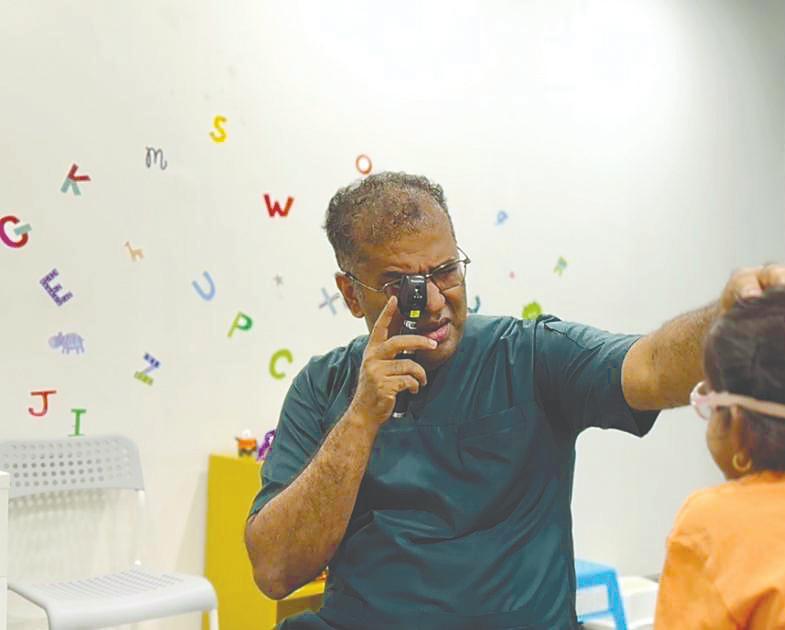PETALING JAYA: A consultant paediatric ophthalmologist has urged parents to ensure that their children do not have excessive screen time on smartphones and tablets to prevent eye strain (asthenopia), which can result in eye pain, blurred vision, and headaches.
Dr Sunder Ramasamy said parents should ensure their children enjoy outdoor activities for exposure to natural sunlight as it helps protect against progressive myopia (near-sightedness).
“There is also a risk of retinal detachment and potential vision loss when children reach adulthood if they use a smartphone for more than two hours without a break since childhood.”
He said the American Academy of Paediatrics and World Health Organisation (WHO) experts recommend no screen time under the age of 18 months.
“For those under 24 months, if screen time is necessary for education, it should be limited to less than one hour per day. While prolonged screen time does not directly lead to blindness, continuous screen time without a break can harm the eyes.”
Sunder said children normally play video games for more than two hours until late at night. The prolonged use of handheld devices such as smartphones, tablets and video games can lead to “over accommodation of the ciliary muscles controlling the lens and eye strain”.
Sunder said inadequate indoor lighting can also contribute to the elongation of the eye, which in turn can lead to progressive myopia, while poor lighting may cause eye strain and potentially accelerate the development of myopia.
He added that the optimal amount of daily screen time recommended for children under 13 years is less than two hours.
International Islamic University Malaysia consultant paediatric optometrist Assoc Prof Dr Norsham Ahmad said it is essential for parents to manage their children’s screen time to prevent negative effects on their visual system.
She said the WHO predicts that by 2050, 50% of the world’s population will have high myopia at an early age.
“Uncontrolled increments of myopia will cause serious visual abnormality and visual impairment in adulthood.
“Parents should take their children for regular eye check-ups as early as three months old to detect any abnormalities as soon as possible. Early intervention can be planned to prevent any problems.”
She said eye fatigue, blurred vision, dry eyes, and headaches can result from prolonged near-focusing, which may cause spasms in some eye muscles.
“This can lead to eye strain and discomfort, contribute to blurred vision when adjusting to different distances, and result in headaches,” she said.
“Previous research suggests that the potential long-term effects of dry eye syndrome is severe visual discomfort. Persistent blurred vision may lead to the development of short-sightedness.
She said all these will affect their quality of life in academics and daily life. This is the reason why children require outdoor activities and other visual-related activities to provide good stimulation for normal development of the visual system.
“It is better if school-age children know and are aware of the importance of eye health care. Children should have an annual comprehensive eye checkup with a qualified optometrist or ophthalmologist.”
Norsham said while it can be challenging, parents should set an example by limiting their own screen time.
“Planning alternative activities and encouraging frequent outdoor play can help reduce screen time and promote a healthier lifestyle.”









